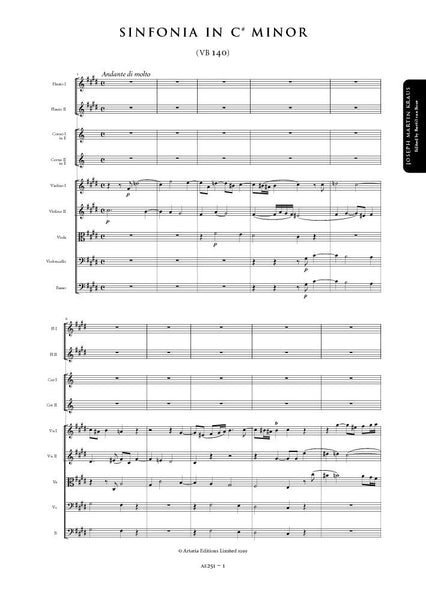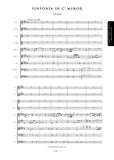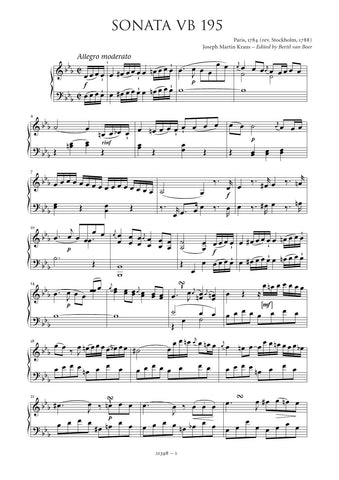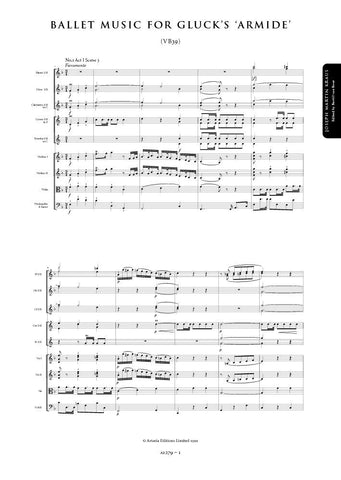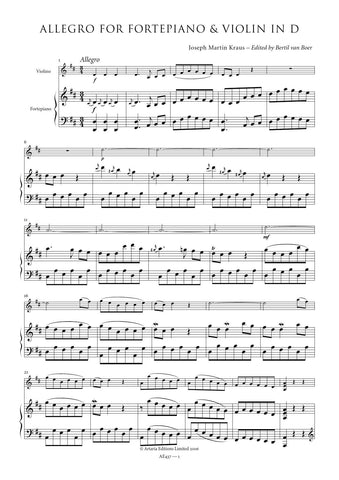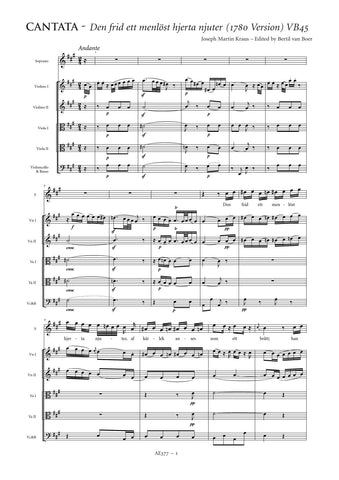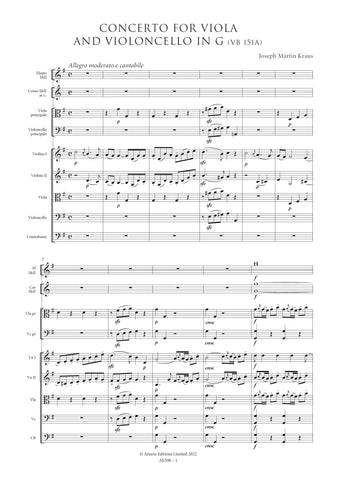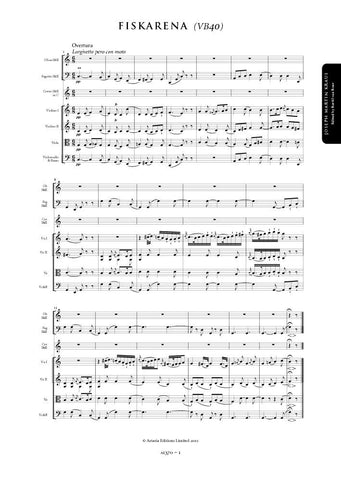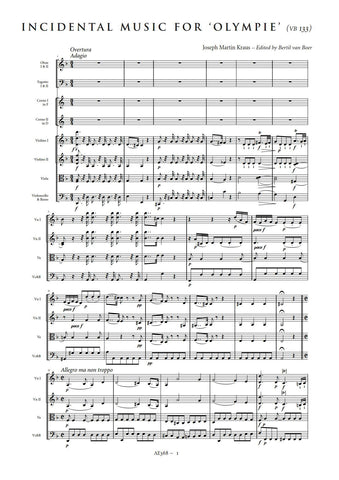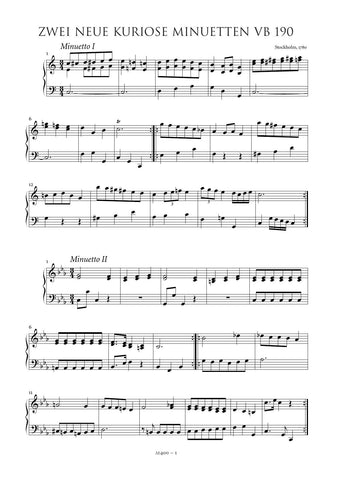Description |
Kraus, Joseph Martin (1756-1792)
|
||||||||||||||||||
Audio sample |
|||||||||||||||||||
Details |
Like the Symphony in C major (VB 139), this work is a representative of the more intimate Sinfonia da camera genre. The autograph parts make it clear that the setting was originally intended to be small, perhaps only one player per part. It is not know for which occasion Kraus composed this work, but watermark dating of the original makes it likely that it was written during the Summer or early Fall of 1782. This symphony is unusual, not only because it is one of those rare pieces written in the key of C minor, but also because it is in four movements, including a minuet; Kraus's normal preference was for a three movement format. The entire work can be considered one of the best examples of a true Sturm und Drang symphony. The slow introduction contains a dramatic allusion to Gluck's overture to the opera Iphigenie en Aulide, a significant homage to one of Kraus's idols. Trademarks of the musical Sturm und Drang abound in the first movement; the swiftly appearing motives, the relentless minor key sonorities, the incessant use of rapidly changing dynamics, syncopations and tremolos, and the often sparse orchestration that lends the movement a powerful tension. The second movement, in contrast, is a lyrical episode whose lines move enharmonically, with a brief reminiscence of the introduction. The minuet is an example of the al rovescio, where the second part is simply the first played backwards in palindrome fashion. As noted above, the edition is based upon the complete set of autograph parts, now in the Royal Swedish Academy of Music Library under signature Z/Sv. Originally, Kraus wrote out a separate figured bass part, even though he also included separate parts for both the violoncello and contrabass. Most likely, this was his "conductor's" score, performed at the keyboard. As is usual with Kraus's autographs, the parts are meticulously written, noting all dynamics, phrasings, etc. Given this precision, the editor has accepted that the composer deliberately chose to vary certain parallel passages, and that the nuances were carefully conceived. For example, in bar 74 of the first movement, Kraus chooses to divide the slurred staccatos, an action necessary to make the bowing come out right in the first violins, even though it does not correspond to the previous articulation of the motive. Likewise in bar 180, the horns sustain the harmony with a halfnote, while the rest of the instruments have only a quarter, thus maintaining the continuity of the piece. Cross slurring in the slow movement has likewise been maintained, although it too seems rather strange to modern eyes; Kraus's intent, however, seems to have been the continuity of the line above regularity. In the Minuet, the final note is a lone b-flat in the bass, an irregularity that Kraus repeated in all three "bass" parts, and thus it has been retained. One ought perhaps to suggest that this movement contains some inside musical joke of the sort that the composer was fond of writing on occasion. Some of the cautionary accidentals have been removed as redundant. Bertil van Boer |
||||||||||||||||||
Performance |
22 May 2014 21 May 2014 Conductor: Mirga Grazinyte-Tyla Wiener KammerOrchester Konzerthaus - Wien - Austria ______________________________ 28 October 2013 Conductor: Pierre Hoppe Kammerorchester der Weingartner Musiktage Sparda Bank Evente Center - Stuttgart - Germany ______________________________ 27 October 2013 Conductor: Pierre Hoppe Kammerorchester der Weingartner Musiktage Ev. Kirche - Weingarten - Germany ______________________________ 14 November 2008 Conductor: Zbigniew Pilch Wroclaw Philharmonic Orchestra Philharmonic Concert Hall - Wroclaw - Poland ______________________________ 25 January 2008 Stuttgarter Kammerorchester Staatliche Hochschule für Musik und Darstellende Kunst, Konzertsaal - Stuttgart - Germany ______________________________ 11-21 December 2006 Camerata Salzburg 1 performance in Wien- Vienna - Austria/ and 5 perfomrances in Wuerzburg, Mannheim, Wiesbaden, Aachen & Essen - Germany ______________________________ 6 October 2006 Wojciech Raiski Polnische Kammerphilharmonie Herbstliche Musiktage (Autum Music Days) - Bad Urach (Festhalle) - Germany |
||||||||||||||||||
Score Preview (best viewed in full screen mode) |
|||||||||||||||||||
Once again, postal service to the USA is disrupted. Click for details close
Loading...
Error




